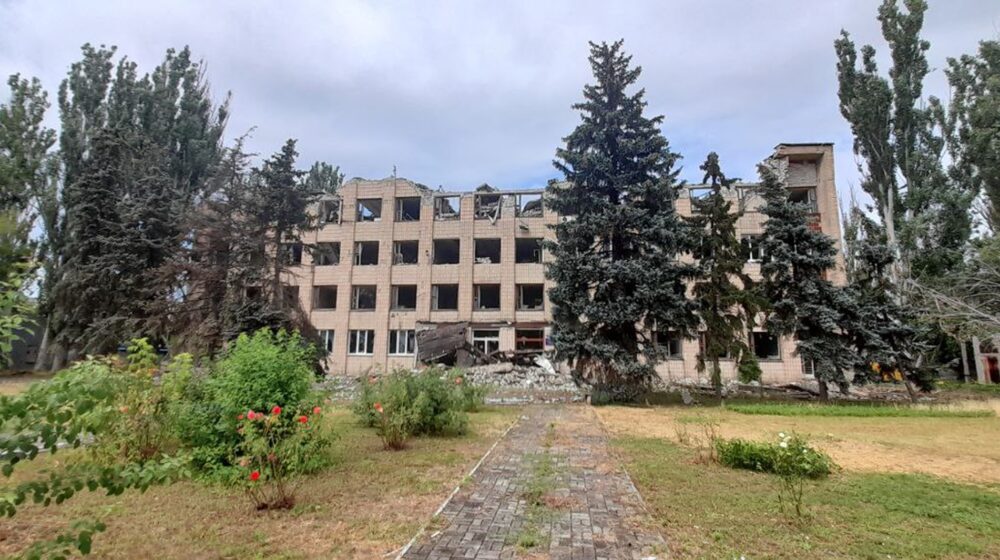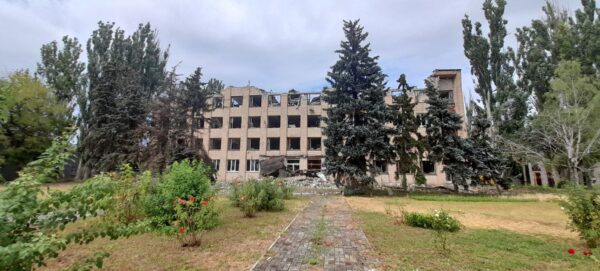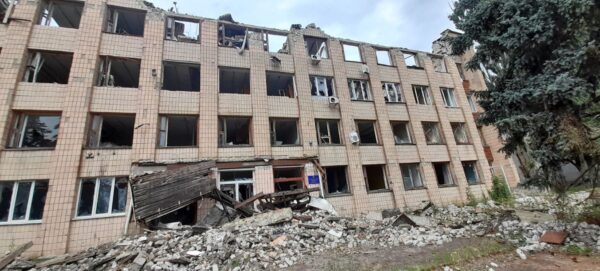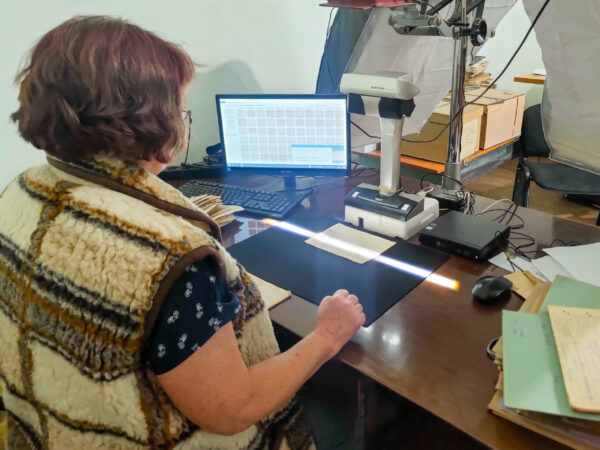Destroyed, looted, exposed to the elements: Ukrainian archives need help

Ukraine’s cultural memory is in acute danger. Millions of unprotected documents are now exposed to rain and snow. Local archives urgently need well-coordinated help in order to digitize their collections. These are the findings of a newly published report by the Arolsen Archives
“We are aware of the destruction and looting that has taken place, and we understand that the Russian invader is using history as a weapon. Against this background, we see it as our responsibility to help ensure that these collections are preserved,” explains Floriane Azoulay, the Director of the Arolsen Archives. The report that has now been published is based on interviews with 23 representatives from the state regional archives and with experts from other archives. The interviews were conducted systematically by Hanna Lehun, Research Associate at the Arolsen Archives. Born in Ukraine, Hanna Lehun conducts research in Ukrainian archives for the Arolsen Archives.
The report documents extent of destruction
According to information provided by the archives, damage has been inflicted on archive buildings in Chernihiv in the north as well as in Mykolaiv, Velyka Oleksandrivka, and Kherson in the south of the country. Fifty percent of the holdings in Kherson were looted and are considered lost. The regional archive in Vysokopillya (not far from Kherson) has been mined and cannot be entered. Those holdings that could be saved from the Russian troops were moved to other archives in a great hurry and became disorganized in the process. Most archives are currently working with just 50 percent of their staff.
Urgent need for support with digitization
All the respondents consider the speedy digitization of their collections to be the most important way of preserving them and of protecting them from being looted or destroyed. Systematic work on digitization is currently being carried out in most regional state archives, for example in Vinnytsia, Kropyvnytskyi, and Poltava. However, many archives lack staff and technical equipment. Computers have been looted, and not enough high-resolution scanners are available. Training is required before scanning can be carried out on a large scale. The results of the scanning process are sometimes unsatisfactory because documents have been prepared inadequately. Storage capacity and access to archival software are limited. Efforts to maintain metadata often fall by the wayside. “The lack of a systematic plan with clear priorities and success indicators makes it hard to assess progress,” comments Hanna Lehun, the author of the report.
Documents on German Nazi crimes are at risk
The loss of documents also has a direct impact on Hanna Lehun’s work at the Arolsen Archives: The Ukrainian holdings include important documents about Nazi crimes committed during the German occupation in the Second World War. It is now more difficult for her to access them. There is a lack of resources for indexing the digital documents. “Without indexing, researchers and the public have much more limited options for conducting research in the archives. Ideally, indexing should be a priority alongside scanning and digitization. However, in order to index the documents, it may be necessary to consult specialists who can provide information about old names and administrative structures. In this case, the Arolsen Archives could help by providing the geographical data and the names of institutions related to the ‘Third Reich’,” explains Research Associate Hanna Lehun. She suggests establishing small indexing hubs to foster close information exchange with the archives.
Currently, the archives themselves are primarily interested in equipment donations, software licenses, long-term usage rights, and staff support. Most of them think financial aid would involve too much red tape and would be too slow. All the archives also mention that they are in need of material for the physical storage of documents after scanning, primarily boxes that meet today’s standards. “We are trying to support the archives in this huge task with our own resources,” explains Floriane Azoulay. “But in order to preserve Ukraine’s cultural memory, we are going to need more partners and more financial resources.”
The full report titled “The Preservation of Cultural Heritage in Ukraine, Needs Assessment Report on Ukrainian Archives” can be downloaded.




